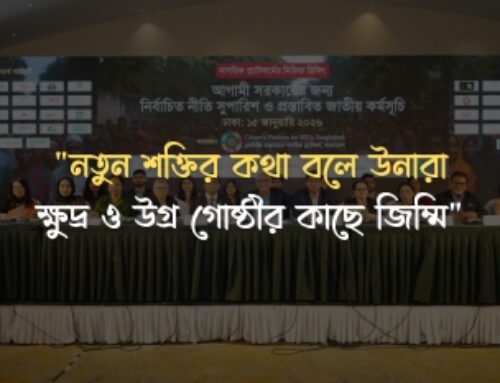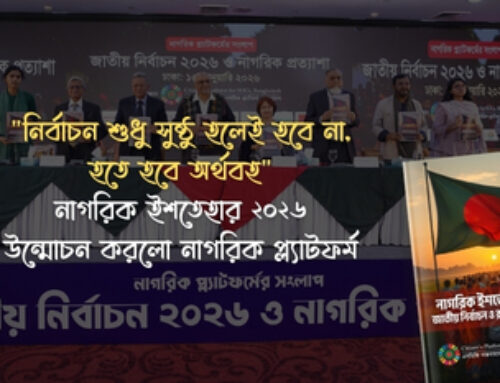Effective partnerships between government and non-government organisations (GO-NGO) built on trust, mutual respect and support will help achieve the UN Sustainable Development Goals (SDGs) in Bangladesh. There should, however, be a set of comprehensive guidelines for such collaborations to work in implementing and monitoring the Goals and ensure accountability for their activities at the same time. Go-NGO partnership will also help reach out to vulnerable groups and serve as a platform for sharing resources and knowledge.
Views such as these emerged at the conference on “Role of NGOs in Implementation of SDGs in Bangladesh” jointly organised by the NGO Affairs Bureau, the Prime Minister’s Office and the Citizen’s Platform for SDGs, Bangladesh. The event took place on 18 May, 2017 at the Bangabandhu International Conference Center, Dhaka.
The conference had an introductory, working and concluding session.
Khandakar Rakibur Rahman, Director General, NGO Affairs Bureau chaired the introductory session where Dr Debapriya Bhattacharya, Citizen’s Platform Convenor and Distinguished Fellow, Centre for Policy Dialogue (CPD) elaborated on the possible nature of Go-NGO partnership. Md Abul Kalam Azad, Principal Coordinator, SDG affairs, Prime Minister’s Office and Dr Shamsul Alam, Member, GED, Planning Commission spoke as Chief Guest and Special Guest respectively. Dr Qazi Kholiquzzaman Ahmad, Chairman, PKSF attended the event as the Guest of Honour.
To listen to their speeches, please watch the video:
During the working session, Professor Mustafizur Rahman, Distinguished Fellow, CPD presented the keynote on “NGOs in Bangladesh: New Roles in the new Global Development Agenda”. He emphasised that implementing the SDGs in Bangladesh will be challenging as it will take place alongside the country’s likely graduation from UN’s Least Developed Countries (LDC) group by 2024. With graduation, Bangladesh’s access to low-cost financing and support measures will be limited. Also, given the fall in remittance inflow for Bangladesh and rise in trade protectionism worldwide, access to foreign funds will be further restricted. This means that NGOs will need to move away from foreign funding and work towards becoming self-sustaining. Domestic resource mobilisation will also play a key role in supporting the Goals.
Ms Khushi Kabir, Coordinator, Nijera Kori and Dr Iftekharuzzaman, Executive Director, Transparency International Bangladesh co-chaired the session. Participants were also divided into Goal-specific groups to identify and present opportunities, challenges and recommendations for GOs and NGOs for achieving those SDGs. You may like to watch the video below for further details:
Dr Debapriya Bhattacharya, while summarising the discussions across the three sessions, highlighted the need for aligning the donors’ and NGOs’ agenda on SDGs, measuring the NGOs’ contribution to the GDP and collecting data on their efforts towards achieving the SDGs. Mr Khandakar Rakibur Rahman presented the closing remarks in this session. Please watch the video below:





